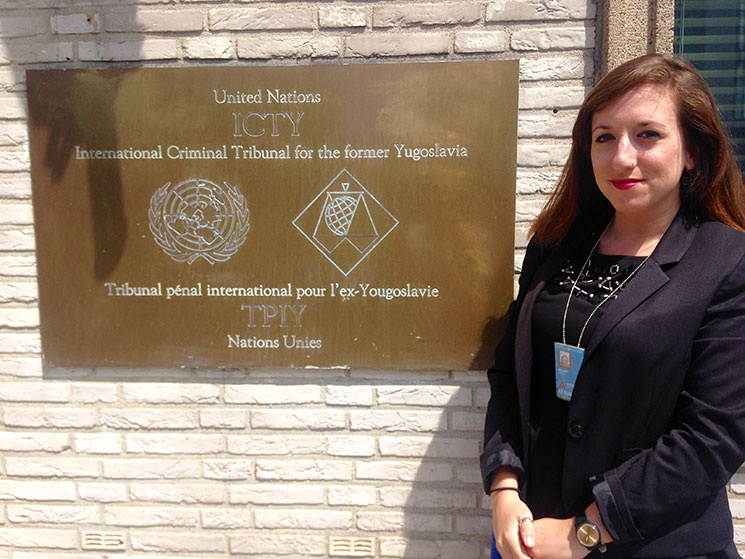From The Hague
By: Chelsea John ’18 | Date: September 8, 2016

Before this summer, I had never lived abroad. I once couch surfed my way through Europe as an undergrad, supported by the hospitality of strangers, while I hoped to discover the truths of Holocaust sites scattered throughout. I learned about the Holocaust through a gendered lens, stories of sexual violence and survival. Such narratives led me to learn about rape beyond the private violence between two individuals. I learned that such violence can be systematic; it can be widespread. This is when I also learned about the legacy of Rhonda Copelon and CUNY School of Law.
Copelon, a CUNY School of Law founding faculty member and a co-founder of CUNY Law’s International Women’s Human Rights Clinic (IWHR) (now renamed Human Rights and Gender Justice Clinic (HRGJ)), once wrote “Rape is seen as an incident to conquest. Nations use rape to destroy the people against whom they are fighting.” For a 1995 St. John’s Law Review Women’s Rights as International Human Rights Symposium, Copelon additionally wrote that “When we start to understand violence against women, not as a family or social problem, but as a profound problem of human rights, we begin to change the role of gender in society.”
Now, as a Sorensen Center fellow, I am putting years of education into practice. This summer, I had the opportunity to assist attorneys who bring to justice violators of these human rights, restore dignity to victims and witnesses, and contribute to changing, or at least challenging, the role of gender in our society.
As an intern for the International Criminal Tribunal for the former Yugoslavia (ICTY) and the Mechanism for International Criminal Tribunals (MICT) in The Hague, I had the opportunity to learn about criminal and international law in one setting. I was a legal intern for the Office of the Prosecutor in their Immediate Office and Appeals division, but I also assisted with trial-related work. Beyond casework, I was given policy and research assignments, which I am truly passionate about, regarding prosecuting sexual and gender-based violence. I also attended weekly lectures about the history of the Tribunal, and I learned how international legal jurisprudence has evolved.
I am very grateful for the opportunity to have served this summer in both the ICTY and the MICT. I was challenged to not just hear the painful stories of thousands of male and female victims of the Balkans, but I needed to understand their impact and translate their experiences for purposes of court proceedings.
I thank the Sorensen Center for giving me the financial means, and the ICTY and MICT for accepting and challenging me in their institutions. I have learned more than I ever thought I could have, especially about myself as an everlasting student of compassion and of justice.
The views expressed herein are those of the author’s alone and do not necessarily reflect the views of the International Tribunal or the United Nations, in general.

